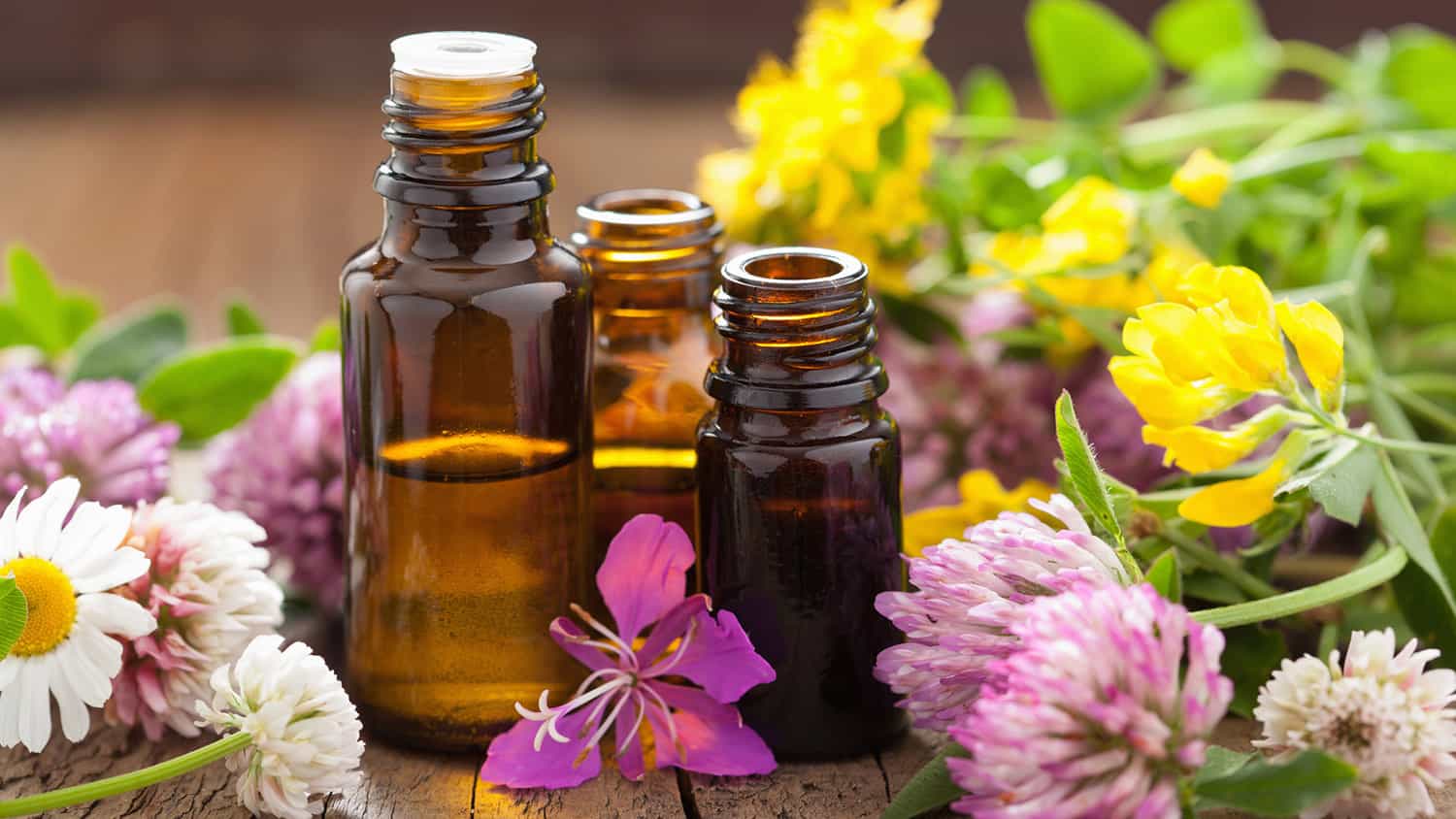For centuries, humankind has relied on the wisdom of nature to heal and maintain well-being. Long before the advent of modern medicine, our ancestors turned to the bounty of the earth for relief from various ailments. From the soothing properties of chamomile to the invigorating power of ginger, plants have played a crucial role in supporting health and longevity. In an era of increasing reliance on synthetic pharmaceuticals, the allure of natural remedies is resurfacing, with many seeking holistic approaches to wellness. This exploration delves into the world of plant-based remedies, exploring their efficacy and safety, delving into specific examples, and offering insights into incorporating them into modern life.
The Enduring Power of Plant Compounds

The intricate web of life, nature’s laboratory, has yielded a vast array of compounds with medicinal properties. Plants, in their struggle for survival, have evolved to produce potent chemicals – alkaloids, flavonoids, terpenoids, and more – to defend against pests, attract pollinators, and adapt to their environment. These very compounds, when carefully extracted and consumed in appropriate amounts, have been found to possess therapeutic effects in human beings.
This inherent healing potential, passed down through generations of traditional knowledge, has captivated scientific researchers. Modern research continues to validate the efficacy of traditional plant-based remedies. Studies have shown that certain plant compounds can exhibit potent anti-inflammatory, antioxidant, antiviral, and antimicrobial properties. For example, turmeric’s active compound curcumin has demonstrated anti-inflammatory and antioxidant effects, potentially beneficial for conditions like arthritis and inflammatory bowel disease. Ginger, known for its anti-nausea properties, contains gingerol, a compound that can help soothe stomach upset and alleviate symptoms of motion sickness.
The exploration of these plant compounds has led to numerous breakthroughs in understanding how they can be harnessed for health benefits. Researchers are increasingly focused on isolating these compounds and studying their mechanisms of action, which can lead to new treatments and therapies. The synergy between different plant compounds also plays a significant role in their effectiveness, as many plants contain a combination of beneficial substances that work together to enhance their overall impact on health.
In addition to their direct health benefits, plant-based remedies often come with fewer side effects compared to synthetic medications. This aspect makes them particularly appealing for individuals who may be sensitive to pharmaceuticals or those looking for gentler alternatives. However, it is essential to recognize that “natural” does not always equate to “safe.” Understanding the proper usage, dosage, and potential interactions with other medications is crucial in ensuring the safe incorporation of plant-based remedies into one’s health regimen.
Exploring Specific Plant-Based Remedies
While modern medical interventions have revolutionized healthcare, many individuals are seeking complementary and alternative approaches to manage common ailments, often turning to plant-based remedies. Here’s a glimpse into the world of plant-based treatments for specific conditions:
Boosting Immunity
Echinacea: This purple coneflower is widely believed to bolster the immune system, particularly during cold and flu season. Studies suggest that echinacea may shorten the duration of colds and reduce the severity of symptoms. Its active compounds, including polysaccharides and alkamides, are thought to stimulate immune function and enhance the body’s ability to fend off infections.
Elderberry: Packed with antioxidants, elderberry extract has been traditionally used to alleviate cold and flu symptoms. It is thought to work by reducing inflammation and supporting immune function. Research indicates that elderberry may inhibit the replication of viruses, making it a popular choice for those looking to boost their immune defenses during peak illness seasons.
Garlic: Known for its pungent aroma, garlic has potent antimicrobial properties. Studies suggest that garlic may help prevent and treat colds, as well as fight infections. The active compound allicin is responsible for many of garlic’s health benefits, including its ability to enhance immune response and combat pathogens.
Managing Digestive Discomfort
Peppermint: This aromatic herb is a popular remedy for digestive issues like indigestion, bloating, and irritable bowel syndrome (IBS). Peppermint oil, known for its relaxing effect on the smooth muscles of the digestive tract, helps relieve spasms and promote digestion. Many individuals find that sipping peppermint tea after meals can alleviate discomfort and improve overall digestive health.
Fennel: This aromatic herb has been traditionally used to alleviate digestive discomfort. Fennel seeds are known to aid digestion, improve gas and bloating, and support overall gut health. The carminative properties of fennel help to relax the muscles of the gastrointestinal tract, making it an effective remedy for cramping and bloating.
Chamomile: This gentle herb has calming properties that can soothe an upset stomach and reduce nausea. Chamomile tea is often recommended for its mild sedative effect, which can also help ease anxiety and promote relaxation. The anti-inflammatory properties of chamomile further contribute to its effectiveness in managing digestive discomfort.
Promoting Sleep
Lavender: This fragrant herb is known for its calming and relaxing properties. Lavender essential oil, when diffused or used in a warm bath, can promote relaxation and improve sleep quality. Research has shown that inhaling lavender scent can reduce anxiety levels and enhance sleep duration, making it a popular choice for those struggling with insomnia.
Valerian Root: This herb has been used for centuries as a sleep aid. Studies suggest that valerian root may help reduce anxiety and improve sleep quality. Its sedative effects are attributed to compounds that interact with neurotransmitters in the brain, promoting relaxation and facilitating a restful night’s sleep.
Lemon Balm: This herb is known for its calming and relaxing effects on the nervous system. Lemon balm tea may be helpful in easing anxiety and improving sleep. The herb’s ability to reduce stress and promote tranquility makes it a valuable addition to any bedtime routine.
Relieving Skin Conditions
Aloe Vera: This succulent plant is well-known for its soothing and healing properties. Aloe vera gel is often used topically to treat burns, cuts, and skin irritations. It helps moisturize the skin, reduce inflammation, and promote healing. The cooling effect of aloe vera makes it particularly effective for sunburn relief.
Calendula: This bright orange flower has anti-inflammatory and antimicrobial properties, making it useful for treating skin conditions like eczema and acne. Calendula cream or ointment can be applied topically to soothe irritated skin and promote healing. Its gentle nature makes it suitable for all skin types, including sensitive skin.
Tea Tree Oil: This oil, derived from the leaves of the Australian tea tree, is known for its potent antimicrobial properties. It is often used topically to treat acne, fungal infections, and other skin conditions. Tea tree oil’s ability to penetrate the skin and target bacteria makes it a popular choice for natural skincare regimens.
Safety and Considerations
While the therapeutic potential of plant-based remedies is evident, it is crucial to approach their use with caution and responsibility. Here are some important points to consider:
Individual Tolerance: Plant compounds can interact with medications and may not be suitable for everyone. Individuals with pre-existing medical conditions, pregnant women, nursing mothers, and individuals taking prescription medications should consult with a healthcare professional before incorporating plant-based remedies into their regimen. Understanding personal tolerance levels is essential to avoid adverse reactions.
Dosage and Preparation: The efficacy and safety of plant-based remedies depend on the quality, dosage, and preparation methods. It is essential to source remedies from reputable suppliers and follow recommended dosage guidelines. Overconsumption or improper preparation can lead to unintended side effects or diminished effectiveness.
Potential Interactions: Plant compounds can interact with medications or other supplements. Always consult with a healthcare professional to ensure that your chosen remedies do not interfere with any existing treatments. Being aware of potential interactions can help mitigate risks and enhance the overall effectiveness of both plant-based remedies and conventional medications.
Quality Control: The quality of plant-based remedies can vary significantly. It is crucial to purchase from reputable suppliers who adhere to strict quality control standards. Look for products that are third-party tested for purity and potency to ensure you are receiving a high-quality product.
Integrating Plant-Based Remedies into Modern Life
Incorporating plant-based remedies into a modern lifestyle requires a balanced approach. While they can be a valuable addition to a holistic wellness regimen, they are not a substitute for conventional medical care.
Combine with Conventional Treatments: Plant-based remedies can work synergistically with conventional treatments. For example, they can be used to manage side effects, enhance overall well-being, and support recovery. Open communication with healthcare providers about the use of plant-based remedies can facilitate a more integrated approach to health.
Consult with Healthcare Professionals: Seek guidance from a knowledgeable healthcare professional who can provide personalized advice on the appropriate use of plant-based remedies. A qualified practitioner can help tailor recommendations based on individual health needs and circumstances, ensuring a safe and effective integration of natural remedies.
Embrace a Holistic Approach: Integrate plant-based remedies into a comprehensive wellness framework that encompasses diet, exercise, stress management, and other healthy lifestyle choices. Recognizing that health is multifaceted allows for a more effective and sustainable approach to well-being.
Harnessing the power of nature for wellness is a journey of exploration and mindful integration. Plant-based remedies offer a rich tapestry of potential therapeutic benefits, providing complementary approaches for managing common ailments. From boosting immunity to promoting restful sleep and soothing skin conditions, the wisdom of plants continues to hold valuable lessons for modern well-being. By embracing a holistic perspective, seeking guidance from healthcare professionals, and using plant-based remedies responsibly, we can unlock the ancient healing power of nature to support our health and vitality.
